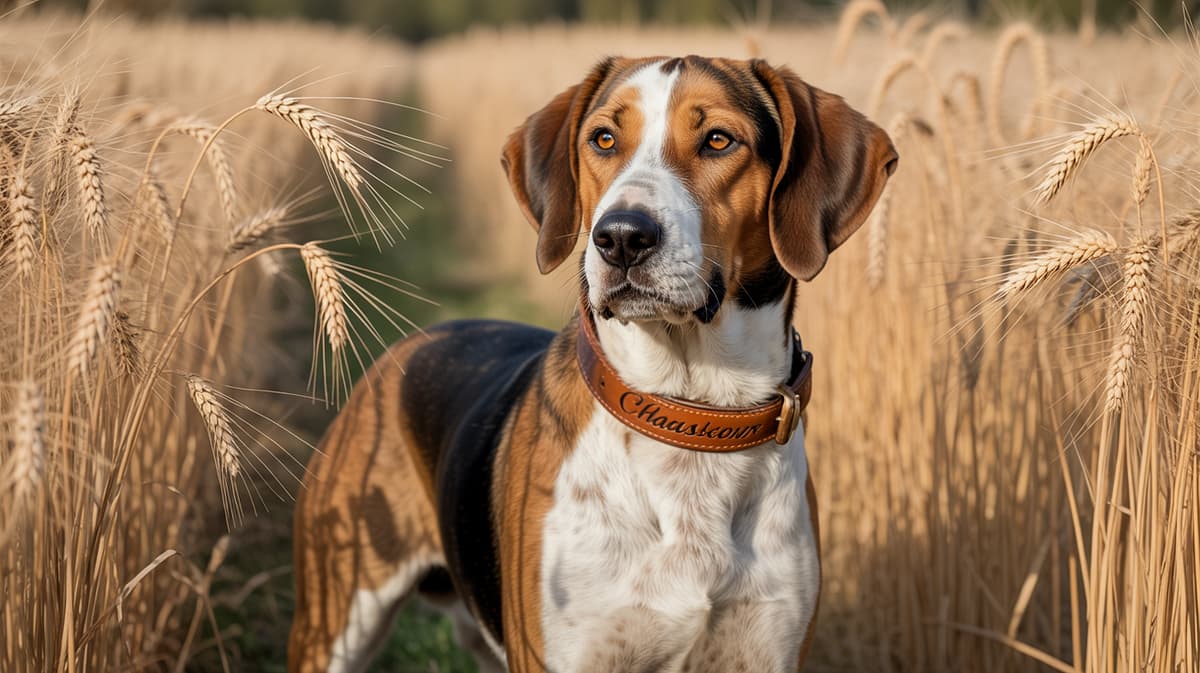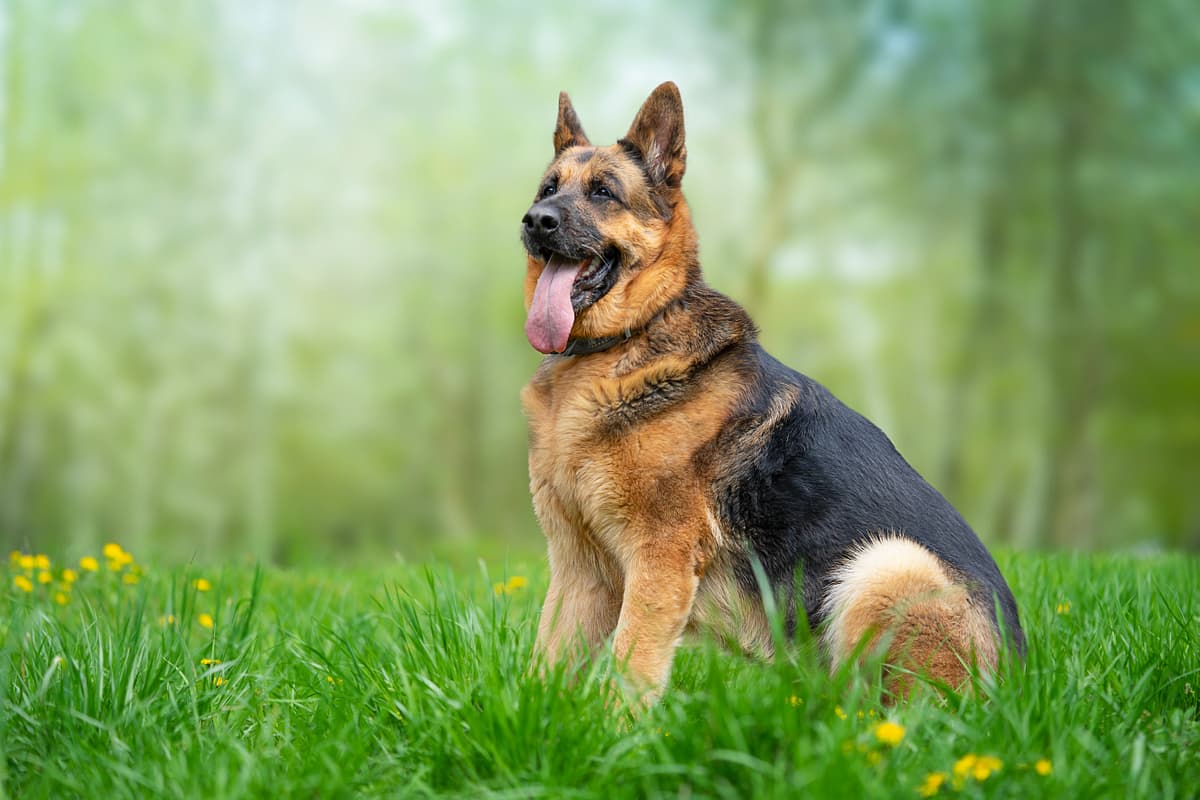Anglo-Francais de Petite Venerie vs German Shepherd
Discover the differences between Anglo-Francais de Petite Venerie and German Shepherd to make the best choice for your situation.
Try different breeds

Anglo-Francais de Petite Venerie
Energetic, alert, and sociable, this breed thrives with active families and enjoys outdoor adventures. Bred for scent work, it bonds closely and displays a cheerful, enthusiastic spirit.

German Shepherd
Confident, loyal, and highly intelligent, this breed thrives as both a devoted family companion and a reliable working partner. Always alert and eager to learn, it adapts to many roles with ease.
Quick comparison
Medium
15–20 kg
Short-haired, dense
12–15 years
13–18 kg
High energy
Large
30–40 kg
Double coat, dense undercoat
9–13 years
22–32 kg
High energy
Personality & behavior
Compare the personality traits and behavioral characteristics of both breeds.
Anglo-Francais de Petite Venerie
Generally sociable with people and other dogs
Learns basic commands at an average pace
Highly active and requires daily exercise
Enjoys interactive games and outdoor activities
Struggles with changes to routine or environment
German Shepherd
Warm with family, reserved with strangers
Quick learner, highly trainable and alert
Needs regular activity and vigorous exercise
Enjoys games, interactive and engaging
Adjusts well to new situations and environments
Care needs
Exercise, grooming, and daily care requirements
Anglo-Francais de Petite Venerie
Ear infections, hip dysplasia
German Shepherd
Hip dysplasia, elbow dysplasia
Suitability
How well each breed fits different living situations and families
Anglo-Francais de Petite Venerie
Challenging for beginners
Needs experienced, consistent handling and training
Not ideal
High energy and vocal nature can disturb neighbors
Highly suitable
Thrives with active owners who provide regular exercise
Generally good
Tolerant but may be too energetic for small children
Usually compatible
Can get along with other dogs, but prey drive affects smaller pets
Prone to anxiety
Dislikes being left alone and can develop destructive behaviors
German Shepherd
Challenging for beginners
Needs experienced, consistent training and socialization
Not ideal
Needs space and frequent exercise to prevent boredom
Perfect fit
Thrives with active owners who can provide daily physical and mental challenges
Highly suitable
Loyal and protective, can be gentle and patient with proper socialization
Usually compatible
Can get along with other pets if raised together and well socialized
Prone to anxiety
Dislikes being left alone for long periods and may develop behavioral issues
Breed strengths
What each breed excels at and their best qualities
Anglo-Francais de Petite Venerie
- Excellent scenting ability for tracking game
- Energetic and tireless during outdoor activities
- Highly social with other dogs in packs
- Adaptable to various rural environments
- Loyal and responsive to consistent training
German Shepherd
- Highly intelligent and quick to learn tasks
- Strong loyalty to family members
- Excellent working and service dog abilities
- Protective instincts make them good guardians
- Adaptable to various training activities
Challenges & considerations
Potential challenges and considerations for each breed
Anglo-Francais de Petite Venerie
- High exercise needs require daily outlets
- Prone to chasing small animals instinctively
- May become vocal if under-stimulated
- Not suited to apartment or urban living
- Can develop separation anxiety if left alone
German Shepherd
- Prone to hip and elbow dysplasia
- High exercise needs require daily activity
- Can develop separation anxiety if left alone
- May be wary of strangers without socialization
- Heavy seasonal shedding requires frequent grooming
Ready to choose your perfect breed?
Learn more about each breed or compare other breeds to find the perfect match for your lifestyle.
Discover more helpful tools
Make use of our other free tools to get the most out of your pet experience
